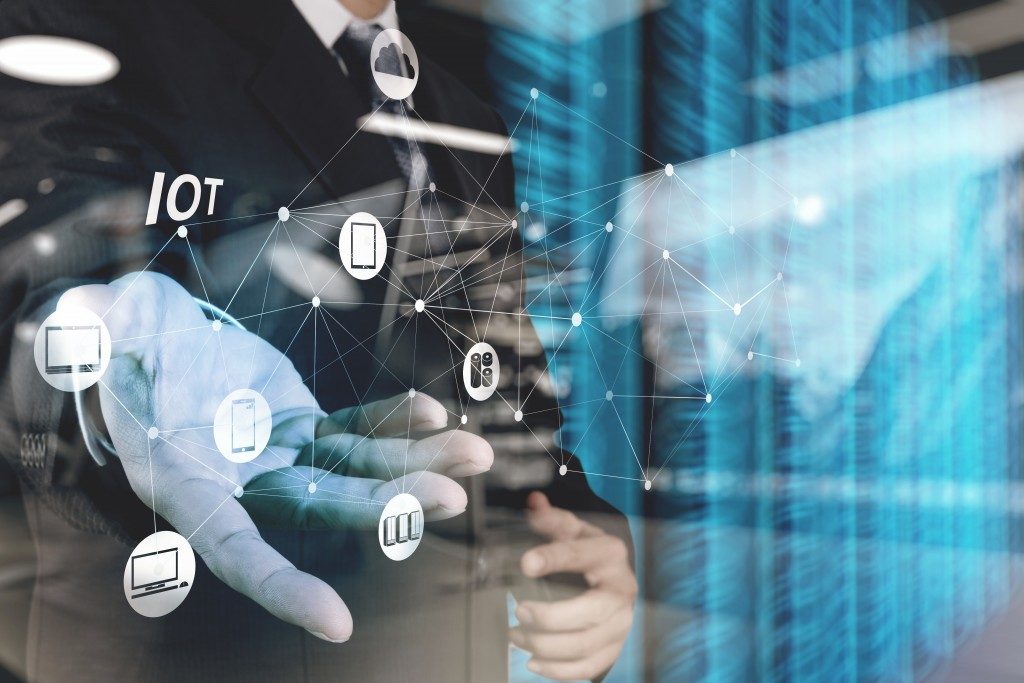The Internet of Things (IoT) continues its rapid growth as people and infrastructure become more connected. It started to develop in smart homes, allowing homeowners to make their residences more comfortable and secure through the simple swipe of a smartphone app or a voice command.
It’s expected that devices will increase to 50 billion by 2020, as they are now widely embraced and used in many areas. In the healthcare industry, smart glasses can help a visually impaired person see better and carry out daily tasks. Other forms of eyewear are built with a GPS tracking unit and digital camera for high-level tracking and monitoring. Businesses find it easier to make crucial decisions thanks to artificial intelligence machines that recommend solutions based on information gathered from a central database.
New trends are expected to materialise over the next few years that will change business operations and day-to-day tasks. Here are the emerging IoT trends in 2020:
More Human-Device Interactions
Today’s businesses use IoT to examine machinery or technology infrastructure. In the coming years, IoT technology is expected to be used to analyse employee performance as well. This will drive an increased discussion about which types of employee monitoring are ethical and optimal, including whether employees perform better when dealing with the anxiety of automated monitoring.
More Voice Recognition Systems
Voice recognition has been a growing technology for decades now, and it has become more accurate in recent years. Consumers are also becoming more used to using voice recognition technologies, and these tools are likely to become more widely used in corporate settings. Since an Internet connection and a microphone are the basic requirements for processing voice data, more IoT devices are likely to offer voice recognition as a feature in the future.
The Emergence of Smart Cities
More countries are aiming to connect their cities through the IoT by 2020. Cities like Boston, London and Singapore have already invested in the IoT for smarter environments. These implementations focus on making daily operations, such as public transportation, more convenient. Installing smart cameras and sensors also improves the security of the area, making it easier for authorities to catch wayward motorists and troublemakers. Investing in the IoT likewise allows cities to gather data, so they can quickly respond to changes and improve sustainability.
Industrial Use of the IoT
 Although many companies use a consumer-targeted IoT, they will start relying on industrial-focused applications to create new infrastructure. Industries like agriculture, insurance, telecommunications and transportation are likely to incorporate the IoT in their latest strategies to resolve problems and make processes more convenient.
Although many companies use a consumer-targeted IoT, they will start relying on industrial-focused applications to create new infrastructure. Industries like agriculture, insurance, telecommunications and transportation are likely to incorporate the IoT in their latest strategies to resolve problems and make processes more convenient.
Decentralisation Using Blockchain
With billions of devices expected to join the IoT network in the future, the framework’s current state is not scalable enough, leaving users vulnerable to cyber threats. By using blockchain, smart contracts allow IoT devices to run safely through agreements that can only be completed when certain requirements are met.
Better Security
In the early stages of the IoT, homes and small businesses used routers with low levels of security in place, which left them vulnerable to cyber threats. With technology multinationals entering the IoT industry, though, devices will be equipped with enhanced security features, providing increased protection and more rapid response to threats. Governments in the EU, Japan, China and the US are also expected to require security chip implantation for secure sharing of data.
While older, more foundational technologies will remain the centre of most digital transformation initiatives, the Internet of Things will continue to grow at a quick but steady pace. With several industry leaders already driving the way to change, people can expect even more advancement in 2020.

